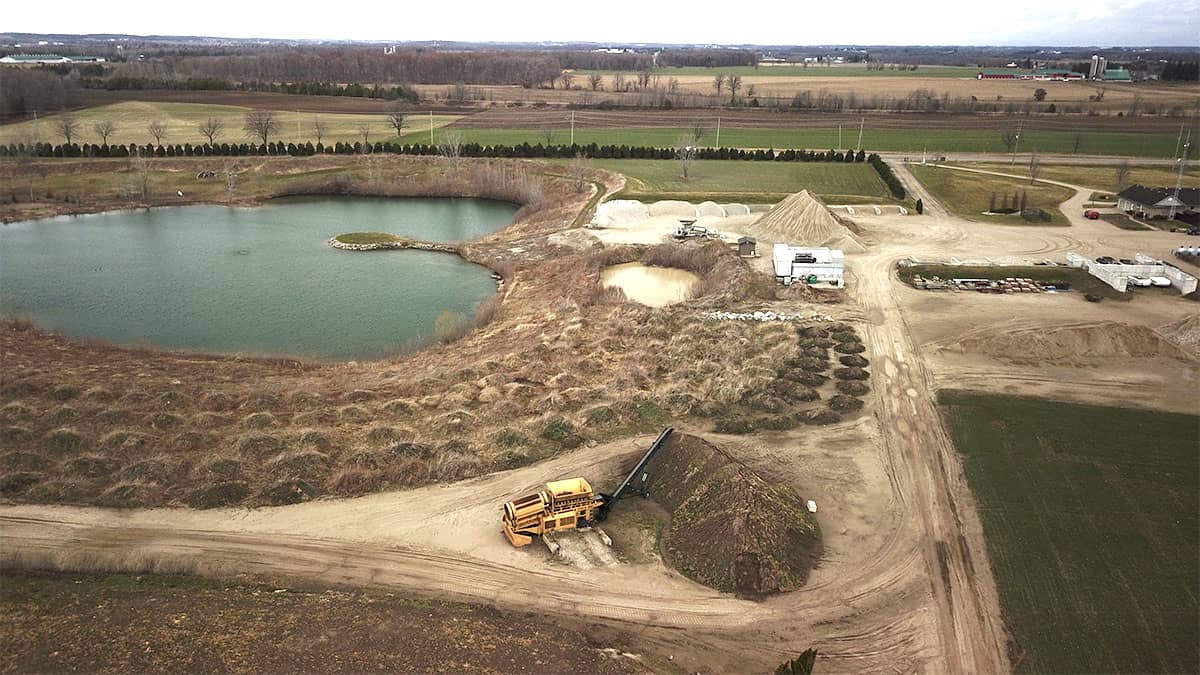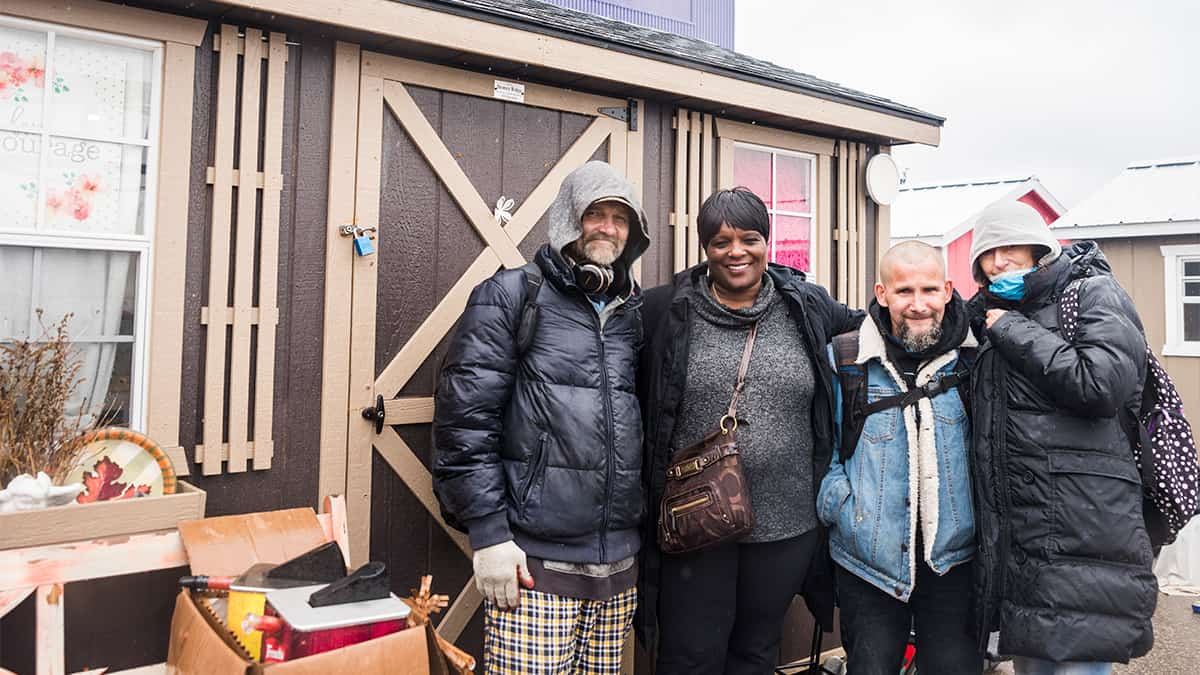Maryhill residents are gearing up for a battle over a gravel pit proposed for the area, decrying a Woolwich planning staff recommendation to approve an application from Guelph-based Capital Paving.
They’re expected to be out in force – at least virtually – when the report is discussed by township council June 22.
“Residents are very unhappy with this decision. Residents will be going to council and speaking. We don’t believe land compatibility has been taken into account properly – there is a village very close to the proposed site, homes, businesses and farms also,” said Maryhill resident Bonnie Bryant, the former Ward 3 councillor who’s been a vocal opponent of the project right from the start.
“Also, there is the cumulative effect of the Kieswetter pit at the Waterloo-Wellington line, which is less than 2 km. from the village.”
At issue is a bid by Capital Paving to develop an extraction operation on a 230-acre site centered on 1195 Foerster Rd., south of Maryhill.
The company has applied to Woolwich for the zoning and official plan amendments needed to mine what is currently farmland. Capital Paving is leasing the site, proposing to extract gravel in five phases, with the owner continuing to farm the land before and after each phase. The plan is to rehabilitate the entire site back to prime farmland when the project is completed. The firm estimates the site contains three million tonnes of aggregate materials. While the pit application looks to extract 500,000 tonnes per year, Capital predicts it would remove about half that much annually, meaning the pit would be in operation for 12 to 15 years.
The applicant has checked all of the boxes and provided the required studies for the likes of noise, dust and traffic to clear the way for the required official plan and zoning changes, said manager of planning Jeremy Vink .
“Township staff have determined through the review of the application and the technical information provided along with the various peer reviews that were completed that the proposed operation minimizes the impacts in a manner that no unacceptable impacts will occur, and the application conforms to the PPS (provincial policy statement), A Place to Grow, the regional official plan and the township official plan, subject to the recommendations contained in this report and the proposed ARA (Aggregate Resource Act) site plan documents being approved by the ministry,” he concludes in his report.
Not surprisingly, the company welcomed the staff recommendation to approve the aggregate operation.
“The comprehensive report includes all the work that was done and peer reviewed by experts in their fields, the proposal’s compliance with all applicable planning policies and legislation, and the fact that any potential impacts will be appropriately mitigated. We are hopeful that township council will approve the OP amendment and rezoning by-law to allow the Shantz Station Pit to move forward,” said Capital Paving resources manager George Lourenco in an email.
Residents, however, will be looking for council to put their interests ahead of the applicant’s by voting ‘no.’
“That’s what they want representation on,” said Ward 3 Coun. Larry Shantz, noting he’ll be listening to what everyone has to say at the June 22 meeting.
Maryhill residents have been very vocal to date in their opposition, he acknowledged, noting he’s received some calls and emails since the planning staff report was made public June 10.
Maryhill Road residents Silvana and Rob Gobbi, for instance, have been busy circulating comments to the township.
“We need our voices heard, but who is watching out for us? We depend on our councillors, mayor and MPPs to stand up for the taxpayer who voted you in to protect us, to follow the vision statement set up to support safe, caring, healthy, sustainable environments and communities, and mutual support for our community. I understand we need gravel, but it does not belong in the middle of a community that is surrounded by significant wetlands, farmlands, businesses, and water sources,” they wrote in their latest letter.
While council will have to vote on the issue, given that gravel pit applications typically involve appeals and intervention by the Ministry of Natural Resources, the ultimate decision likely lies outside of Woolwich, he said.
“It could possibly be out of our hands at the end of the day.”









